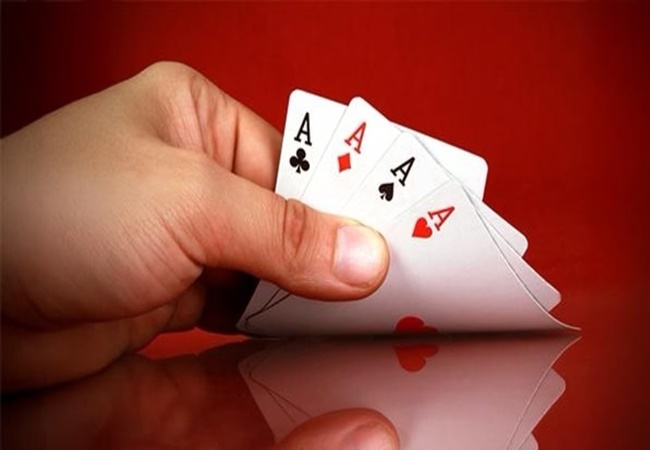From Casual to Pro: Making a Living Playing Poker in India
Poker in India, once considered merely a pastime or a game of luck, has gradually emerged as a viable profession for many. With the rise of online platforms, greater access to international tournaments, and the growing acceptance of poker as a skill-based game, an increasing number of Indians are transitioning from casual players to professional poker athletes. This shift is not without its challenges, but the evolving landscape—fueled by interest in poker in India and the Best Rummy game—shows that making a living playing is not only possible but becoming more mainstream.

The Rise of Poker in India
Over the past decade, the Indian poker scene has seen exponential growth. Online poker platforms such as Adda52, PokerBaazi, Spartan Poker, and PokerStars India have played a crucial role in popularizing the game. These platforms have brought poker into the homes of millions, offering tournaments, cash games, and leaderboards with substantial rewards.
Simultaneously, the emergence of Indian poker pros on international stages—and the rise of games like Teen Patti Stars—has fueled interest. Players like Aditya Agarwal, Nipun Java, and Muskan Sethi have become household names among poker enthusiasts, showing that Indian players can compete — and win — at the highest levels.
From Hobby to Profession
For many, poker in India begins as a recreational activity — a game played with friends or a way to unwind after a long day. But for those with the right mix of skill, discipline, and ambition, the game holds much more potential.
The transition from casual to professional is not immediate. It involves understanding game theory, learning bankroll management, and dedicating time to study and practice. Many professional players spend hours reviewing hand histories, analyzing their opponents, and studying poker strategies through books, courses, and coaching.
One of the most critical aspects of this transition is recognizing poker in India as a skill-based game. While luck plays a role in the short term, long-term success is driven by skill, patience, and emotional control.
Skills Required to Go Pro
To make a living through poker in India, players need more than just a love for the game. They must develop a range of skills, including:
- Mathematical Aptitude: Understanding probabilities, pot odds, and expected value is essential.
- Emotional Discipline: Managing tilt (emotional reactions to losses) is crucial for long-term success.
- Decision-Making: Quick, strategic thinking is necessary to outmaneuver opponents.
- Bankroll Management: Knowing how to manage funds and choose stakes wisely prevents financial ruin.
- Adaptability: Poker game is dynamic. Players must evolve their strategies with changing trends and opponents.
The Indian Legal Landscape
One of the biggest uncertainties for poker in India lies in the legal landscape. While several states consider poker a game of skill and allow it under existing gaming laws, others view it as gambling and restrict or ban it.
For instance, states like Nagaland and Sikkim have recognized poker as a skill-based game, licensing online platforms and regulating operations. However, states such as Gujarat and Tamil Nadu have banned online poker, making it risky for professionals residing there.
Despite this patchwork of regulations, the overall trend seems positive. The judiciary in various rulings has acknowledged that poker requires skill, which offers hope for broader acceptance in the future.
Online vs. Live Poker
In India, online poker dominates the scene due to convenience and accessibility. Professional players can participate in multiple tables, engage in high-stakes tournaments, and even qualify for international events from the comfort of their homes.
Live poker, while still growing, is limited to a few physical casinos in Goa, Sikkim, and offshore ships. However, with the increasing popularity of poker events like the India Poker Championship (IPC) and Deltin Poker Tournament (DPT), the live scene is slowly gaining traction.
Most professionals prefer a mix of both, using online poker for consistent income and live tournaments for prestige and larger prize pools.

Financial Realities of Being a Poker Pro
Contrary to the glamorous image often portrayed, professional poker is not a guaranteed path to riches. It’s a high-variance career with swings that can be emotionally and financially taxing. Only a small percentage of players make a consistent profit, and even fewer can sustain it over the long term.
Professionals often supplement their income by streaming games, offering coaching, writing strategy content, or signing sponsorship deals. The key is diversification — relying solely on playing income can be risky.
That said, top Indian poker pros can earn anywhere between ₹10 lakhs to ₹1 crore or more annually, depending on their skill level, consistency, and ability to leverage branding opportunities.
Challenges Faced by Indian Poker Pros
- Social Stigma: Poker in India is still misunderstood in many Indian households. Convincing family and society that it’s a legitimate career can be challenging.
- Legal Ambiguity: As mentioned, the legal status of poker varies by state, creating uncertainty and limiting opportunities.
- Mental Stress: High stakes and high variance lead to stress and burnout. Emotional resilience is as crucial as technical skill.
- Limited Live Ecosystem: The lack of widespread live tournaments reduces opportunities to gain exposure and experience.
The Road Ahead
The future of professional poker in India looks promising. With increased digitization, growing acceptance, and a more informed player base, the industry is set for continued expansion.
Efforts from platforms to promote responsible gaming, offer skill development programs, and organize national-level tournaments are changing perceptions. Meanwhile, international recognition and success stories are inspiring a new generation of players to take the leap.
To sustain and grow as a professional poker player in India, individuals must treat the game like a career — with structured goals, continuous improvement, and a clear understanding of the risks involved.
Final Thoughts
Making a living playing poker in India is no longer a fantasy. It is a reality for a dedicated and growing community of players who approach the game with seriousness and professionalism. The journey from casual to pro is not easy, but for those who commit to the grind, the rewards — both financial and personal — can be substantial.
As India’s poker ecosystem continues to mature, the dream of turning passion into profession is within reach for more players than ever before.








